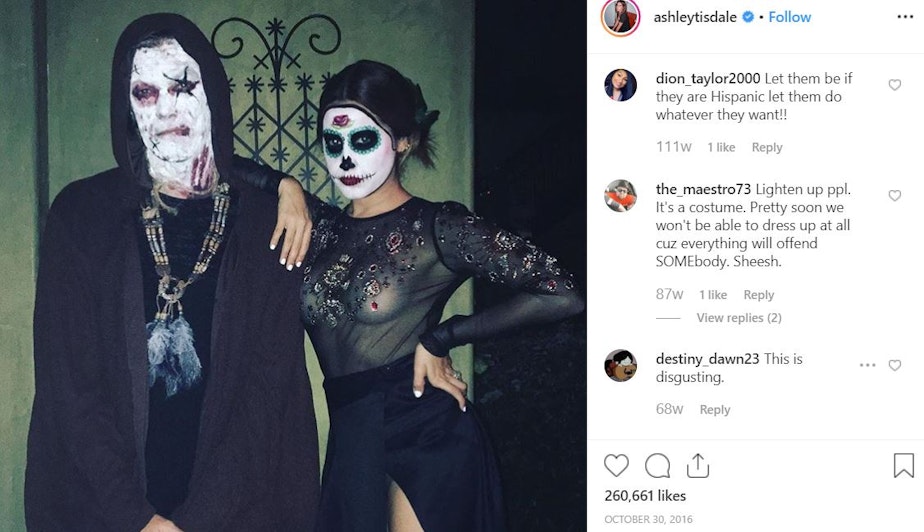This is why some Seattle schools didn’t allow costumes on Halloween

Yes, dressing up as a voodoo doll is cultural appropriation.
That was the answer to a question put to NPR’s Code Switch two Halloweens ago, a mother asking if her daughter’s request for a voodoo costume was problematic.
“That kind of voodoo, with the dolls and the zombies, is what you see in movies like Indiana Jones or Princess and the Frog,” wrote Leah Donnella, perpetuating “racial tropes about Haitian Vodou — voodoo dolls among them.
Cultural appropriation is one of the main reasons that some Seattle schools didn't allow kids to wear costumes to school on Thursday.
Some schools did allow costumes, although most provided guidance: No blood, no gore, no weapons, no masks, no face paint. And please, no costumes of people from other cultures.
While there is no district policy on Halloween costumes, a memo from the district's Department of Racial Equity Advancement explained the risk of cultural appropriation.
Sponsored
“Cultural appropriation perpetuates inaccurate stereotypes about People of Color,” the memo says. “When these inaccurate stereotypes are perpetuated, they create offensive, hostile, and uncomfortable conditions for our diverse communities.”
In a Facebook parent group, Jenn Lee of Magnolia said she was pleased that her child's school did not allow costumes during the school day.
"My kid's kindergarten class came up with a list of why they were not celebrating Halloween at school and posted it outside their classroom," Lee wrote on Facebook.
"It was all about inclusivity, not being distracted from learning, and recognizing some people don't celebrate this holiday or may not have the means to do so, and that they don't want their friends feeling left out."
Lee said that cultural appropriation has been a problem in years past.
Sponsored
"I'm one of the few people of color at our school," she said. "I don't need it at the school — we'll contend with and talk about it enough after trick or treating tonight."
The principal at Viewlands Elementary in north Seattle wrote to families:
“We cannot guarantee all costumes will be appropriate, not all families will have costumes and not all families believe in the tradition of dressing up," he said. "We do not want to unintentionally exclude, or even offend, members of our community.”
Some parents in the parent Facebook group lamented this ban at some schools, saying that it fostered creativity and unity. One mom posted an essay from a Bellevue mom who wrote poignantly about her autistic son living for Halloween.
But another mom said that she recalled feeling left out as a child whose family was on welfare.
Sponsored
Allanah Raas-Bergquist, a parent at Viewlands, said she'd witnessed that sadness up close.
“One because she couldn’t afford a costume and the other because they didn’t know what Halloween was (because they had never celebrated it before).”

